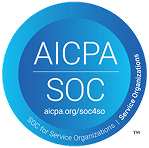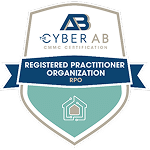The Death Master File (DMF) is a crucial database containing information about deceased individuals. Accessing DMF data requires rigorous certification to ensure data security and privacy. However, navigating this process unlocks the full potential of DMF data, facilitating business growth, regulatory compliance, and fraud risk mitigation.
The DMF certification offers enhanced credibility, improved fraud prevention, regulatory compliance, and access to valuable data. This blog comprehensively explains the DMF certification process, eligibility criteria, application procedures, review, and certification issuance by the Social Security Administration (SSA)
UNDERSTANDING THE DEATH MASTER FILE (DMF)
The Death Master File (DMF) is not just a resource; it’s a lifeline for various data management sectors. Maintained by the Social Security Administration, it is an extensive database containing vital information about deceased individuals. Understanding the DMF’s importance can give businesses, government agencies, and research institutions actionable intelligence and enable them to make informed decisions.
The DMF includes the names, Social Security numbers, dates of birth, dates of death, and last known addresses of individuals. It is a valuable tool for verifying deaths, preventing identity fraud, managing benefits, and conducting statistical research for public or private use.
HOW IS THE DMF UTILIZED?
Accessing DMF data requires proper authorization and strict compliance with SSA regulations. It’s important to note that with significant data comes great responsibility. The use of DMF data carries certain risks, such as the potential for data breaches or misuse. Therefore, businesses and organizations must obtain access to the DMF through a certification process demonstrating a legitimate need for the data.
Once certified, organizations can use DMF data for various purposes, such as verifying deaths, preventing fraud, and ensuring compliance with regulations. However, knowing the risks and challenges associated with using DMF data, such as data breaches or misuse, is crucial. It’s essential to take the appropriate measures to mitigate these risks, such as implementing robust data security measures and ensuring compliance with data protection regulations.
ROLE OF THE SOCIAL SECURITY ADMINISTRATION (SSA) IN MAINTAINING
THE DMF
The Social Security Administration collects death reports from various sources, including funeral homes, relatives, financial institutions, and state vital statistics offices. These reports are meticulously processed and added to the DMF, ensuring accuracy and completeness. The SSA also oversees access to DMF data, including the certification process for entities seeking access to the file. This central role ensures the reliability and integrity of the DMF, making it a trusted resource for various sectors.
THE IMPACT OF EMERGING TECHNOLOGIES ON DMF DATA MANAGEMENT
Emerging technologies are reshaping how DMF data is managed and utilized as technology advances. For example, artificial intelligence (AI) offers opportunities to enhance the accuracy and efficiency of DMF-related processes.
AI-powered algorithms can analyze vast amounts of data from the DMF, identify patterns, and detect anomalies more effectively than traditional methods. This can lead to greater precision and speed, enabling organizations to leverage DMF data for various purposes, such as fraud detection, risk assessment, and identity verification. These technological advancements are not just theoretical possibilities but practical tools that can significantly improve the utilization of DMF data.
Additionally, blockchain technology has the potential to revolutionize DMF data management by providing a secure and transparent platform for storing and accessing sensitive information. By utilizing blockchain, organizations can ensure the integrity and immutability of DMF records, mitigating the risk of data tampering or unauthorized access. This enhances the reliability and trustworthiness of DMF data, fostering greater confidence among users and stakeholders.
Furthermore, advancements in data analytics and machine learning algorithms enable organizations to extract valuable insights from DMF data, helping them make more informed decisions and optimize their operations. By harnessing the power of these technologies, organizations can unlock the full potential of DMF data and derive maximum value from it.
THE DMF CERTIFICATION PROCESS
Applying for DMF certification involves meeting strict eligibility criteria set by the SSA. Organizations seeking limited access to DMF (LADMF) must undergo an assessment by an independent third party, which is an accredited conformity assessment body (ACAB). The ACAB verifies that the organization has the necessary people, processes, and technologies to safeguard the DMF information. It’s important to note that a third-party conformity attestation is required every three years.
Below are some requirements for the DMF certification process:
Legitimate Need for DMF Data
Organizations must demonstrate a legitimate and lawful need to access DMF data. This requirement ensures that only entities with valid reasons, such as administering benefits, processing insurance claims, or conducting genealogical research, are granted access to this sensitive information.
Adherence to Strict Privacy and Security Standards
To secure DMF data, organizations must follow SSA’s privacy and security standards, including robust data security measures to prevent unauthorized access, data breaches, and information misuse. Compliance with relevant laws and regulations such as the Health Insurance Portability and Accountability Act (HIPAA), the Gramm-Leach-Bliley Act (GLBA), and the Fair Credit Reporting Act (FCRA) is also necessary.
Ethical and Responsible Data Practices
The SSA requires organizations to uphold ethical and responsible data practices when accessing and utilizing DMF data. This includes obtaining consent from individuals or their authorized representatives, maintaining accurate and up-to-date records, and using the information only for lawful and legitimate purposes. This underscores the gravity of your responsibility to ensure ethical data practices.
THE DMF CERTIFICATION APPLICATION PROCESS
Organizations must confirm their eligibility for DMF certification by providing detailed documentation outlining their purpose for using DMF data, internal data security measures, and compliance with relevant regulations. The documentation typically includes specific use cases and evidence of strong data security measures such as encryption protocols, access controls, and compliance with industry standards. These measures should already be implemented within the organization to protect sensitive data.
REVIEW AND APPROVAL BY THE SOCIAL SECURITY ADMINISTRATION (SSA)
The SSA conducts a thorough review to determine an organization’s eligibility for DMF certification. The process involves several steps, including documentary reviews, audits, site visits, and interviews with key stakeholders. This helps ensure the organization meets all necessary criteria and safeguards for accessing DMF data.
ISSUANCE OF DMF CERTIFICATION
After completing the review process, the Social Security Administration (SSA) grants DMF certification to an organization that authorizes access to Death Master File (DMF) data for legitimate purposes. This certification is a significant milestone in the organization’s data management journey, indicating compliance with strict eligibility requirements and data security standards.
However, receiving the DMF certification alone is insufficient, as ongoing compliance monitoring and adherence to SSA guidelines are crucial. To ensure continued compliance, the SSA may perform periodic audits or reviews of an organization’s data management and security posture. These assessments examine adherence to guidelines and identify areas for improvement. Organizations must address compliance issues promptly and take corrective actions to maintain their certification status.
BENEFITS OF DMF CERTIFICATION
DMF certification is crucial for safeguarding sensitive information and driving business success in today’s data-centric environment. Below are some of the benefits of a DMF certification:
Enhanced Credibility and Trustworthiness
DMF certification shows an organization’s dedication to responsible data management and compliance with strict security standards. This enhances the organization’s credibility and trustworthiness with stakeholders, customers, and regulatory authorities. By prioritizing data security and compliance, organizations can build a reputation as trustworthy custodians of sensitive information, fostering stronger relationships with clients and partners.
Compliance with Industry Regulations and Standards
DMF certification helps organizations comply with industry regulations and standards for sensitive data handling. It prevents costly penalties and legal consequences for not meeting requirements. This certification also shows a commitment to ethical data practices and positions organizations as data security and compliance leaders.
Improved Fraud Prevention Measures
Access to Death Master File (DMF) data can enhance fraud prevention measures, verify identities, detect fraudulent activities, and protect against identity theft. By utilizing DMF data, organizations can proactively identify and mitigate risks associated with fraudulent transactions, safeguarding their assets and clients’ interests.








